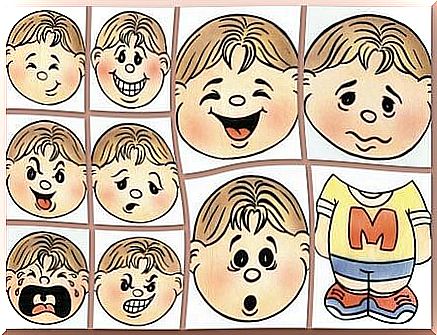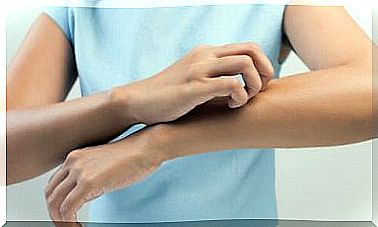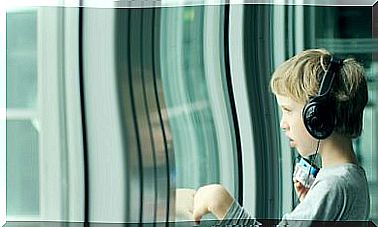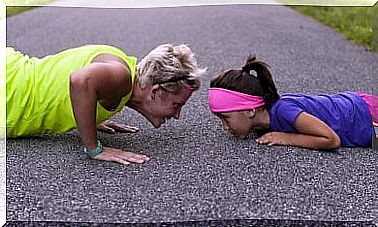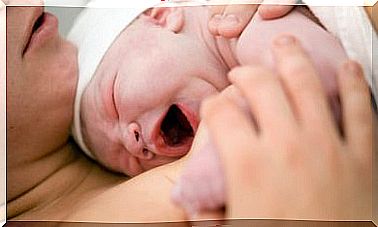Why Do Children Bite Their Nails?

Children biting their nails is very common. This habit, called onychophagia, can occur even before the age of three, and is very difficult to break. Thus, it is not unusual to find adults who maintain this behavior. However, we must try to prevent children from biting or even biting their nails.
Although it is a very common gesture, onychophagia can have negative consequences on children. Nail biting can affect child development, oral health and the self-esteem of those who acquire this habit. We tell you why children bite their nails and some simple ways to help them eliminate this habit.
Causes and risks of nail biting
Nail biting is not a disease, but a bad habit and compulsive act. That is, it is not done consciously, nor is there a motivation behind it, such as attracting the attention of parents, for example. Its origin could be in a habit of sucking the thumb that has not finished being eliminated.
However, there are other possible causes. Children can develop this gesture also out of curiosity, boredom, imitation, habit or to relieve stress. It is a way of handling the intense emotions of childhood. If you perceive that this behavior in your child is moderate – not hurting himself – or distracted, there is probably nothing to worry about.
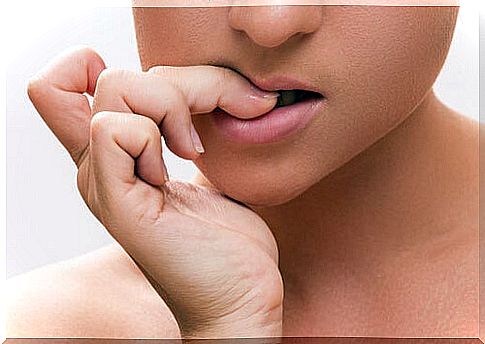
In most cases, onychophagia disappears with age, but it is important that the child does not acquire this habit because it has some risks. The first of these will be that the children will hurt their fingers. In addition, these bites can cause infections in the gums and damage the growth of the teeth and favor the appearance of warts. Together, these problems can also generate self-esteem problems for aesthetic reasons.
What to do so that they do not bite their nails
It is very possible that your child will quit this habit on his own. But if onychophagia lasts too long or is very bothersome, there are some simple ways to help you eliminate it. To begin with, as parents we must be patient and understanding with children.
Some tactics against onychophagia
- Don’t scold or punish him. Unless it is your own decision, it is difficult for you to prevent your child from biting his nails. Like other habits or nervous tics, onychophagia is unconscious. Reprimanding him for doing something he doesn’t realize will not do much good.
- Try to find out the causes. No matter what remedy you apply: if you don’t know why she bites her nails, you won’t be able to kick the habit. Talk to your child, explain the situation, and find out how to change this behavior. In addition, you have to pay attention to the situations that can trigger it.
- Give him options. You can suggest alternative activities or relaxation techniques for your child when he feels the urge to bite his nails. In addition to helping you distract yourself and ignore those urges, these new activities will relieve you of all tension and nervousness.
- Make him play sports. Since onychophagia is usually of nervous origin, physical exercise can help control it. In addition, playing sports during childhood is as important as it is beneficial.
- Be very patient. Eliminating a habit is not a matter of a day. It is a long, slow and gradual process, in which we will have to insist a lot. Encourage your child to find the best techniques to contain the urges of onychophagia and show your full support.

When is it cause for concern?
Being such a common habit, we can underestimate onychophagia. In some cases, nail biting can be a sign of excessive anxiety. If your child hurts his fingertips or bleeds, warts or infections appear, you can go to the doctor to treat it.
Especially, it is recommended that you consult your pediatrician if this habit is also accompanied by other nervous behaviors. For example, if you notice that his skin is pinched, his eyelashes or hair are pulled, or his sleep patterns change.
